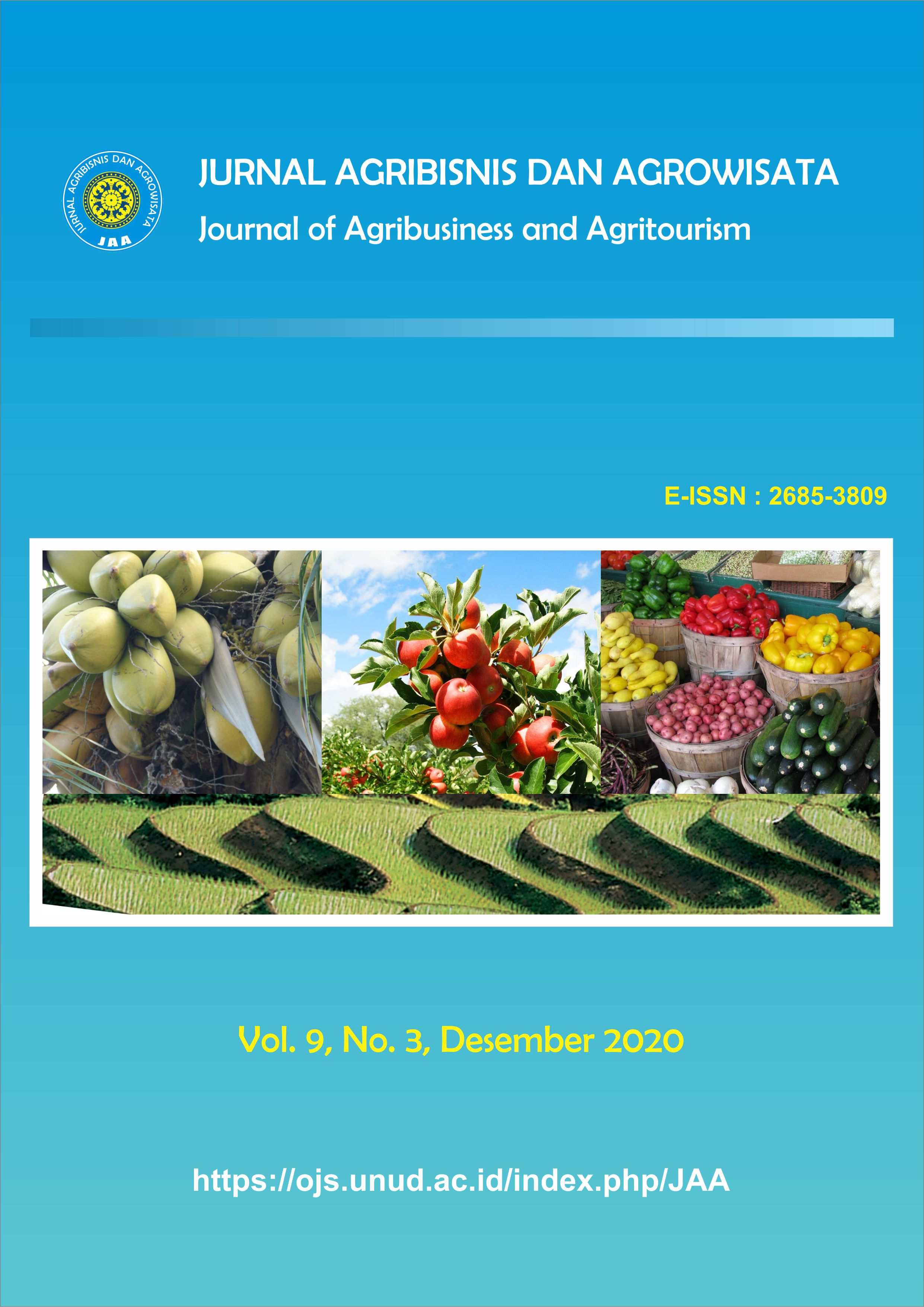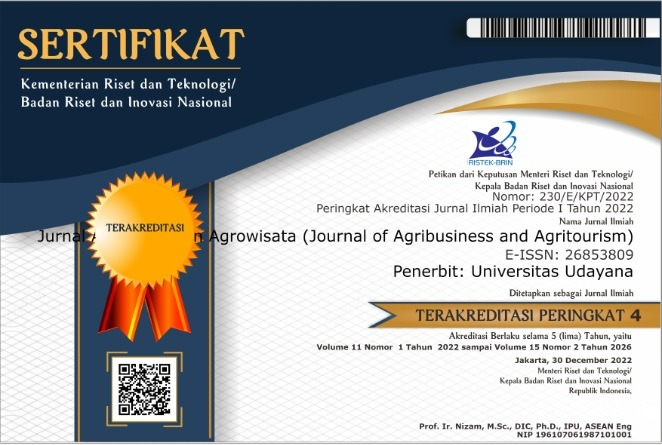Pengembangan Koperasi Subak: Kasus Subak Guama di Kabupaten Tabanan, Provinsi Bali
Abstract
Subak Cooperative Development: The case of Subak Guama in Tabanan Regency, Bali Province
To achieve food security and food self-sufficiency, it can be carried out by subaks who apply the principles of agribusiness, through subak cooperatives, such as the KUAT Cooperative of Subak Guama. The purpose of this study was to describe the management of the cooperative agribusiness activities and to find out the benefits felt by farmers from the management of the KUAT Cooperative of Subak Guama. The location of this research was in Subak Guama, Tabanan Regency. The sample selected by simple random sampling was 80 farmers. Key respondents were also taken. Data were collected by using techniques survey, observation and documentation. Data were analyzed using descriptive methods. The benefits felt by farmers were measured by the Likert scale technique.The results showed that the KUAT Cooperative of Subak Guama carried out agribusiness management in the form of providing inputs and agricultural equipment and machinery; agricultural culture; agricultural product processing; marketing of agricultural products; and joint agribusiness support activities The benefits felt by farmers from economic activities at the KUAT Cooperative of Subak Guama are in the high category. It is recommended that intensive participatory empowerment be carried out at the subak and cooperative levels in order to increase the capacity of the farmers and subak administrators as well as the KUAT Guama cooperative.
Downloads
References
Agbo, F.U. 2009. Farmers’ Perception of Cooperative Societies in Enugu State, Nigeria. Agro-Science Journal of Tropical Agriculture, Food, Environment and Extension, Volume 8 Number 3 September 2009 pp. 169- 174
Aref, F. 2011. Agricultural Cooperatives for Agricultural Development in Iran. Life Science Journal, Volume 8, Issue 1.
Bian, Y. 2012. Social Capital of the Firm and its Impact on Performance: A Social Network Analysis, In A. S. Tsui and C. Lau, eds. The Management of Enterprises in the People's Republic of China, Boston : Kluwer Academic Publishers, 2002, pp. 275-297.
Espallardo, M.H., Narciso A.L., and Gustavo M.M. 2012. Farmers’ satisfaction and intention to continue membership in agricultural marketing co-operatives: neoclassical versus transaction cost considerations. European Review of Agricultural Economics. pp. 1–22
Nurunisa, V.T., dan L.M. Baga. 2012. Analisis Daya Saing Dan Strategi Pengembangan Agribisnis Teh Indonesia. Forum Agribisnis, Vol.2, No.1: 33-52.
Putnam, R.D. 1992. The Prosperous Community: Social Capital and Public Life .American Prospect, 13, Spring, 35- 42. In Elinor O. and T.K. Ahn. editors. Foundation of Social Capital. Massachusetts: Edward Elgar Publishing Limited.
Roth, D. and Sedana, G. 2015. Reframing Tri Hita Karana: From ‘Balinese Culture’ to Politics. The Asia Pacific Journal of Anthropology Vol.16, Issue 2: 157-175.
Sedana, G. I G.A.A.Ambarawati, and W. Windia. 2014. Strengthening Social Capital for Agricultural Development: Lessons from Guama, Bali, Indonesia. Asian Journal of Agriculture and Development. Vol.11 No.2:39-50
Zhao, Q., and Li, Y. 2007. Guanxi networks and cooperative economy in Chinese Rural Society. Agricultural Econmics Issues (8), 40-46.







